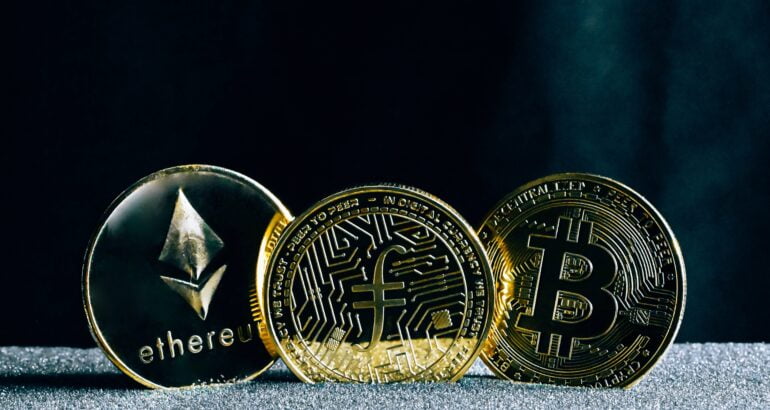Introduction: A validator is a participant in the blockchain network who performs the task of validating transactions.
A validator is an important part of the crypto world. They are responsible for ensuring that transactions are valid and that blocks are created in an orderly fashion. Validators also play a role in maintaining the security of the blockchain. In order to be a validator, you need to be able to keep up with the ever-changing technology and have a deep understanding of how blockchain works.
What Is a Validator?
A validator is a trusted third party who is responsible for ensuring that transactions are valid and compliant with the rules of a cryptocurrency system. Validators play an important role in maintaining the integrity of the blockchain and preventing fraudulent activity. They also provide users with a trustless experience, by verifying transactions without needing to trust the other party.
Cryptocurrencies are based on trustless systems, which means that users do not need to trust one another in order to conduct transactions. This is made possible by the use of cryptographic algorithms and a public ledger known as the blockchain. The validation of transactions is one of the most important functions of a cryptocurrency network, and it is carried out by validators.
Validators are trusted third parties who are responsible for ensuring that all transactions are valid and compliant with the rules of the system. They play an important role in maintaining the integrity of the blockchain and preventing fraudulent activity. They also provide users with a trustless experience, by verifying transactions without needing to trust the other party..”
What Is the Role of a Validator?
A validator is a person or entity who verifies the correctness of transactions in a blockchain. A validator’s job is to ensure that all transactions are recorded accurately and without tampering. Validators receive a reward for their services, which helps to stabilize the network and keep it running smoothly.
There are many benefits to being a validator. First and foremost, it is a way to earn rewards for helping to maintain the blockchain. Validators also have a say in how the blockchain operates, and can help make decisions about changes or updates to the network. Finally, by verifying transactions, validators help keep the blockchain secure and tamper-free.
For one, it’s a great way to earn money. Validators are rewarded for their services with cryptocurrency tokens. This helps to stabilize the network and keep it running smoothly. Additionally, validators have an important role in ensuring the security of the blockchain. They help to prevent fraudulent activities and ensure that all transactions are recorded accurately.
There is a lot of responsibility that comes with being a validator, but it’s also a very rewarding job. If you’re interested in becoming a validator, there are several things you need to know first.
First off, you need some basic knowledge about blockchain technology and how it works.. You should also be familiar with different types of cryptocurrencies and understand how they function.” Secondly, you need some technical skills so you can maintain the network infrastructure.” Finally,”you must be able to commit time and resources to running the validation node.”
If you meet these requirements, then becoming a validator is definitely something worth considering! The role ofvalidator is crucialto maintainingthe securityand stabilityof anyblockchainnetworkand offersmany rewardsfor those who take on this challenge
How Does a Validator Validate Transactions?
A validator is a person or entity that verifies and approves transactions in a cryptocurrency network. The validation process ensures that transactions are legitimate and not fraudulent. Validators play an important role in the security and integrity of the cryptocurrency system. They also help to prevent spam and fraud.
There are several methods that validators use to validate transactions. One common approach is to use a consensus algorithm. This algorithm allows validators to agree on which transactions are legitimate. The consensus algorithm also helps to prevent spam and fraud by identifying illegitimate or fraudulent transactions. Another method that validators use is known as proof of work or proof of stake. With this approach, the validity of a transaction is verified by checking the amount of work or stake that has been put into verifying it.
Validators must be reliable and trustworthy in order to maintain the security and integrity of a cryptocurrency network. They must also be able to keep up with the ever-changing landscape of digital currencies in order to stay ahead of potential attacks or scams .
What Are the Benefits of Using a validator?
One of the benefits of using an avalidator is that it can help to ensure the accuracy and authenticity of a cryptocurrency transaction. This is important because it can help to prevent fraud and protect both the sender and receiver of the currency. Additionally, avalidators can also be used to verify the legitimacy of new cryptocurrencies.
Another benefit of using an avalidator is that it can help to protect the privacy of users. By verifying the legitimacy of a cryptocurrency transaction, avalidators can help to prevent others from being able to track the activity of individual users. This is important because it helps to protect user privacy and keep their information confidential.
Finally, avalidators can also be used for educational purposes. By verifying the legitimacy of new cryptocurrencies, avalidators can help educate people about how these currencies work and how they are different from traditional ones. This is important because it helps people understand this new technology and how it may impact their lives in the future
Conclusion:
A validator is an important part of any blockchain network. They play a crucial role in ensuring that transactions are accurate and secure.
A validator is an important part of any blockchain network. They play a crucial role in ensuring that transactions are accurate and secure. Validators help to prevent fraudulent activities and keep the network running smoothly. In order to be a validator, you need to have a good understanding of the blockchain technology and be able to operate the software correctly. It is also important to have some knowledge of cryptography in order to verify signatures and encrypt messages.
If you are interested in becoming a validator, there are several things you can do to prepare yourself. First, read as much as you can about blockchain technology and cryptography. Next, participate in online forums or chat rooms where people discuss these topics. Finally, get involved with development projects that are building new blockchains or improving existing ones




